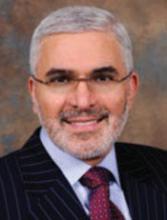Current Psychiatry has built its reputation as the clinical journal that provides psychiatrists with peer-reviewed, practical advice by leading authorities, emphasizing up-to-date solutions to common clinical problems. As Editor-in-Chief, I’m pleased to announce that Current Psychiatry is expanding its mission to you and your patients through an agreement with the American Academy of Clinical Psychiatrists (AACP).
Quadrant HealthCom Inc., publisher of Current Psychiatry, will collaborate with the AACP by:
- publishing its official journal, the Annals of Clinical Psychiatry
- managing and co-sponsoring its annual conference, beginning in 2009
- developing and managing www.aacp.com, the official Web site of the AACP and the Annals.
This agreement provides excellent synergy. As a past president of the AACP and a founding editorial board member of the Annals, I believe it offers exciting and important benefits for psychiatry professionals.
Emphasis: Clinical psychiatry
The AACP is a unique professional society that encourages the exchange of information between clinicians interested in evidence-based practice and academicians involved in clinical research. It is the type of psychiatric association that Current Psychiatry readers should seriously consider joining. Its founder, the late George Winokur, MD, played a leading role in developing the first diagnostic criteria for use in psychiatric research—a prototype for the Diagnostic and Statistical Manual of Mental Disorders.1 A cherished mentor, Dr. Winokur trained a generation of outstanding psychiatrists during 24 years as professor and head of the University of Iowa’s department of psychiatry. He was my role model when I was on the faculty at Iowa in the 1980s.
Donald W. Black, MD, professor of psychiatry at the University of Iowa College of Medicine, has served as Editor-in-Chief of the Annals since 2004 and will continue in this role. Dr. Black also trained with Dr. Winokur and is recognized as an outstanding educator, researcher, and clinician.
The AACP launched the Annals in 1989 to provide clinical psychiatrists with up-to-date information on the symptoms, diagnosis, and treatment of mental disorders. The quarterly journal, which emphasizes the results of controlled clinical studies, is abstracted/indexed in Index Medicus, Excerpta Medica, Current Contents, EMBASE, PsychINFO, and other databases.
The AACP will continue to select and appoint the Annals’ Editor-in-Chief, set the journal’s editorial mission, recruit the editorial board, invite authors, and implement peer review. Quadrant HealthCom Inc. will be responsible for production, mailing, and other publishing duties. Continuing medical education (CME) supplements to the Annals will be distributed to Current Psychiatry’s circulation as well.
The AACP’s annual meetings provide educational updates that Current Psychiatry readers will find useful and relevant to clinical practice. “Bipolar disorder and ADHD: Solving clinical challenges, improving patient care” is the theme of the April 2009 conference, which will be held in Chicago. An outstanding faculty is onboard for this CME opportunity, which is open to AACP members and nonmembers alike.
Quadrant HealthCom Inc. will develop and relaunch the AACP Web site. Its content will be expanded to include materials from presentations at AACP annual meetings and industry-sponsored programs.
Benefits for all
I am very enthusiastic about this agreement. Current Psychiatry—a clinical journal that reaches more than 39,000 psychiatrists and psychiatric nurse practitioners—is joining forces with the Annals of Clinical Psychiatry, a well-established scientific journal that focuses on the latest clinical research. As a result:
- Readers of both journals will benefit from expanded CME opportunities as funding becomes available for industry-sponsored programs and supplements.
- Members of the AACP gain Quadrant HealthCom Inc.’s publishing expertise for their respected scientific publication and meeting planning experience to grow their annual meeting.
- The AACP and Current Psychiatry Web sites will complement each other in serving the needs of clinical practitioners with expanded content and educational offerings.
I predict that a vibrant community of clinical psychiatrists will emerge from this collaboration and energize psychiatric education, both online and in print.


